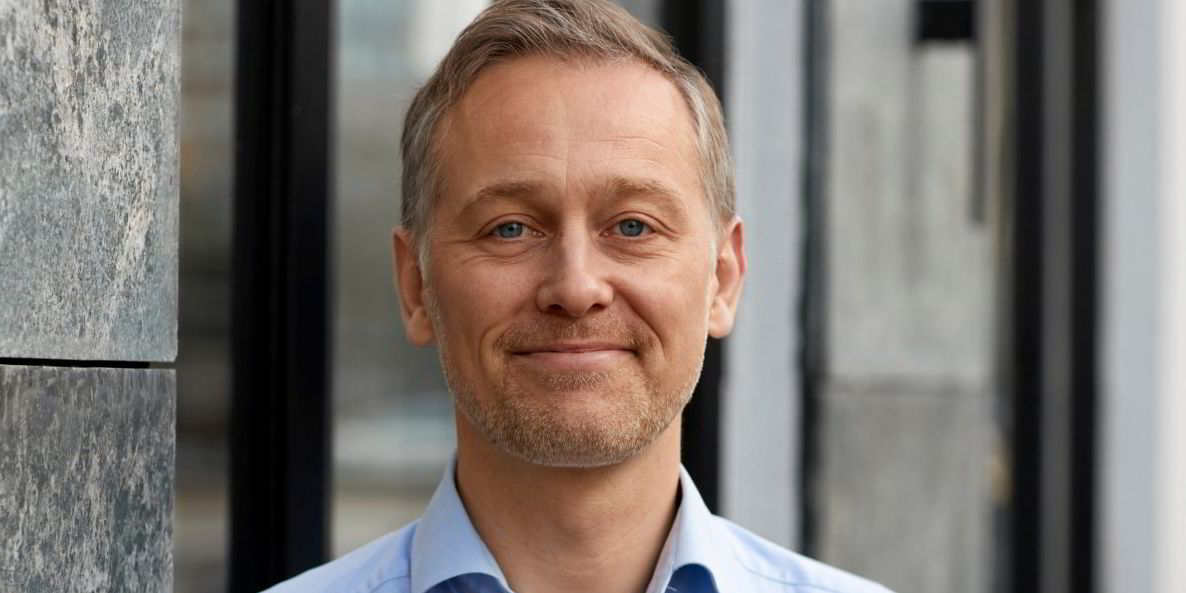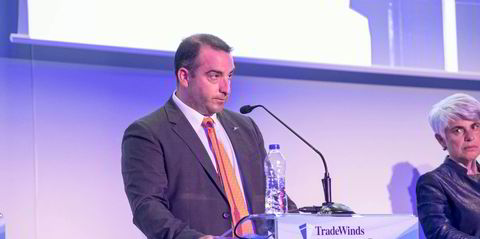Maersk Tankers has lost about 20 vessels from its pools as members cash in on the red-hot sales market.
In the latest sign of the fallout from Russia’s invasion of Ukraine, the number of vessels under the commercial ship manager has fallen from around 200 to 180.
The change has been driven by owners taking advantage of demand from investors seeking to tap into surging tanker spot rates that have increased for MRs by 300% since February, according to chief executive Christian M Ingerslev.
“If you go back to 2021, which seems far away, this was the worst year in more than 30 years,” he told TradeWinds. “And now, finally, shipowners have an opportunity to realise value. So we see a lot of changes in the fleet.”
The tanker sector remains highly fragmented, with the average product owner having fewer than four ships, he added.
Maersk Tankers is a market leader even though its 180 ships under management represent little more than 5% of the 3,263 product tankers above 10,000 dwt.
Changing trading patterns prompted by the war have seen tanker rates surge as Europe sources crude and products from further afield. Russia has replaced lost export barrels to Europe with sales to Asia, increasing tonne-mileage and boosting the sector.
The Baltic Exchange clean tanker index has been on average 113% higher than during 2021. Bimco reported this week that average one-year time charter rates were up 84% for product tankers since the beginning of the year, with second-hand asset prices tracking those rates upwards.
“It’s fair to say that a number of ships that have left are sold to new investors who see an opportunity in the tanker market,” Ingerslev said.
“I can’t say specifically if they are involved in the Russian trade or not, but there’s no doubt that the premiums that you see on Russian trades for many people are quite attractive.
“The owners that are in our pools, and ourselves, we do not take part in these Russian trades.”
Ingerslev believes the decline in the pools is temporary.
Decarbonisation challenge
The company announced on Thursday that it is shaking up its chartering and operations business to address the changes in the trading environment and new emissions regulations from 2023.
Tom Hewitson will head its chartering unit in charge of cargoes from large energy companies and trading houses. He has worked for Morgan Stanley, BP and Castleton Commodities International.
The shake-up would have happened without Russia’s invasion, Ingerslev said.
“It’s an investment in the belief we have in the commercial management model. This is what is needed if the industry is to move forward, longer-term,” he said.
“From the point of view of decarbonisation, we require scale as an industry if we are to succeed.”
Copenhagen-based Maersk Tankers has 49 pool partners running dirty and clean product carriers.
The reduction in its numbers comes as Norden relaunched a product tanker pool and is on the hunt for new members. It has around 130 product tankers, of which 24 are handysizes and the rest are MRs.
Another major pool operator, Navig8, has more than 140 ships under management.





